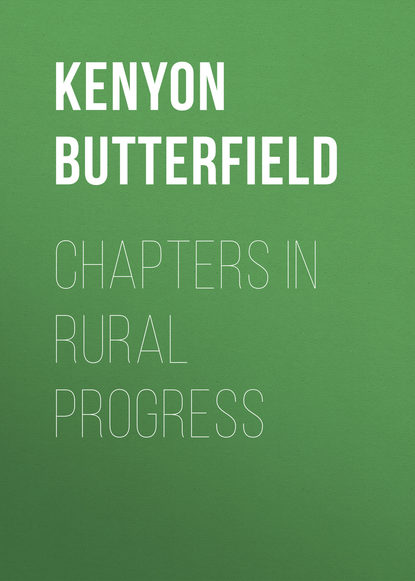По всем вопросам обращайтесь на: info@litportal.ru
(©) 2003-2024.
✖
Chapters in Rural Progress
Настройки чтения
Размер шрифта
Высота строк
Поля
The presidents of the component organizations shall be ex-officio vice-presidents of the Federation.
8. Auditing. – All bills shall be paid by the treasurer after the same have been countersigned by the Auditing Committee.
9. Term of Office. – The terms of all officers shall be one year or until their successors are elected.
10. How Elected. – All officers shall be elected by ballot.
The Massachusetts Conference for Town and Village Betterment has dealt with some phases of the federation idea. Its object is "to contribute to the formation of a strong, definite, and united purpose among the forces working for the improvement of civic and social conditions in Massachusetts, by bringing together all town and village improvement societies, citizen's associations, civic clubs, and other organizations interested in this purpose."
The Massachusetts Agricultural College, in celebrating the fortieth anniversary of its opening to students, October 2, 1907, held a four days' conference on rural progress. The programme covered nearly the whole field of rural development and was made possible by the co-operation of the State Board of Agriculture, the State Grange, the Massachusetts Civic League, the Connecticut Valley Congregational Club, the State Committee of the Y. M. C. A., the Western Massachusetts Library Club, and the Head-Masters' Club of the Connecticut Valley. No permanent organization was formed, but the general idea of federation of rural social forces was fully emphasized and thoroughly appreciated.
An attempt was made in the spring of 1907 to bring together the various elements of rural progress in all the New England states. Under the initiative of the Massachusetts State Board of Agriculture there was held in March, 1907, a New England Conference on Rural Progress. This meeting was held very largely for the purpose of discovering the sentiment among the leaders of New England agriculture with respect to the desirability and practicability of federating on so large a scale. In addition to the main meeting, the presidents of the agricultural colleges of New England were called together in a special section, and the same was true of the directors of the New England experiment stations, the masters of the various state granges, the secretaries of the various state boards of agriculture, and the leaders in the New England Federation of Churches.
The idea of federation was clearly approved by the delegates present, and a temporary organization was effected. It was voted to hold a similar conference in Boston in the spring of 1908.
It is probably true that the first and most important step in bringing about a federation of rural social forces is to educate all concerned to the desirability of such a federation – to sow the seeds of the idea. So far as machinery is concerned it may not be necessary to form any new organization. Indeed, what is chiefly necessary is a sort of clearing-house for an exchange of ideas and plans among all who are at work on any phase of the rural social problem. There is need of a central bureau that shall emphasize the necessity of a study of agricultural economics and rural sociology, and press the value of co-operation in the work of social progress in the country. There is need that somewhere "tab" shall be kept on the whole rural social movement. We need a directing force to assure a comprehensive view and study of the whole rural problem. It is important that some investigations should be carried on that are not likely to be taken up by some other agency. It would be desirable to have a certain amount of publication, and in various other ways to carry on a campaign of education. Above all, it would be desirable to initiate local, state, and national conferences pervaded by the spirit and purpose of securing the hearty co-operation of all rural social forces, of all the organizations that have any rural connection whatever, and of all individuals who have the slightest genuine interest in any phase of the farm problem.
Such a bureau should keep in constant touch with, secure the confidence of, and supply appropriate literature to, country teachers, preachers, editors, doctors, and business men, and, more than all, to intelligent and progressive farmers. And let me add at this point, that it must be fully understood that the work contemplated cannot possibly achieve large success unless it is done with the farmers, rather than for the farmers. The problem is far from that of doing a missionary work for a down-trodden and ignorant class. It is a much less heroic, a much more commonplace task. It is simply carrying the idea of co-operation of individuals a step farther, and endeavoring to secure the co-operation of interests that have precisely the same goal, although traveling upon different roads. The prime purpose of the movement is to bring the specialist into close touch with the more general phases of the problem, to secure breadth and wholeness, to assure well-balanced effort.
[Note. – A paper with the title of this chapter was read before the American Civic Association in 1901, at Minneapolis. A portion of the paper is retained here. The history of the development of the idea of federation is brought down to the present time.]
notes
1
The material for this chapter is taken from an address entitled "Social Problems of American Farmers," which was read before the Congress of Arts and Science, section of The Rural Community, at St. Louis, September, 1904.
2
Addressed to students in an agricultural college.





